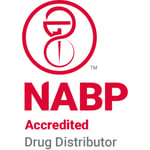Unit-dose medication packaging has been a standard practice for hospital pharmacies since the late 1960s. Since then, pharmaceutical manufacturers and wholesalers have consolidated, resulting in fewer unit-dose drugs being available to hospital pharmacies. This directly caused price increases on unit-dose products, frequent backorders and more limited options.
In addition, hospitals and hospital pharmacies are more reliant than ever on bar-coded unit-dose medications. This is due to the expansion of the decentralized pharmacy models and automated dispensing cabinets, as well as increased patient safety initiatives, like bedside scanning.
Together, those factors put hospital pharmacy managers in a difficult position: They are tasked with dispensing medications in bar-coded unit-dose packaging despite the ever-increasing expense of doing so.
A Costly Balancing Act
It’s clear that buying most drugs on-contract in bulk is cheaper. But to balance the lower-cost option of buying medications in bulk, hospital pharmacies are forced to invest in and have the capabilities to repackage medications (oral solids and oral liquids) into unit-dose — which is easier said than done.
Today, there is much-added complexity for hospital pharmacies to repackage medications in-house. They must:
- Have correct bar code formats and content;
- Ensure proper dosing;
- Provide label information;
- Have the repackaged drugs checked by a pharmacist;
- And indicate expiration dates.
And that all needs to be completed while hospital pharmacy workloads and costs continue to increase, and hospital budgets and reimbursements decrease.
So how do we fix that?
A Cost-Effective, Quality-Focused Solution
When you consider the expense of labor, materials, equipment and maintenance, it’s easy to realize in-house repackaging may no longer be the obvious option. Luckily, there is a more cost-effective and higher-quality method for repackaging pharmaceuticals: leveraging a third-party unit-dose drug repackaging partner.
Outsourcing medication repackaging can help hospital pharmacies execute a cost-savings program that allows them to still purchase more on-contract bulk medications without needing additional internal resources to repackage them.
And not only do outsourced repackaging providers negate the need for extra resources, they also offer better quality assurance. Quality can be difficult to put a price tag on. However, outsourcing unit-dose repackaging to an FDA-registered, cGMP-compliant facility provides a cost-effective solution by reducing the risk of unnecessary waste or medication errors.
Pharmacy managers have the right mindset to combatting increased unit-dose drug costs by purchasing their drugs in bulk. But repackaging bulk quantities in-house often leaves them where they started: with higher costs and internal resources stretched thin.
Therefore, an increasingly popular answer to the rising cost of drugs is to rely on a trusted outsourced packaging vendor like Safecor Health.
Check out our free cost savings eBook to learn more about increasing drug cost savings.


